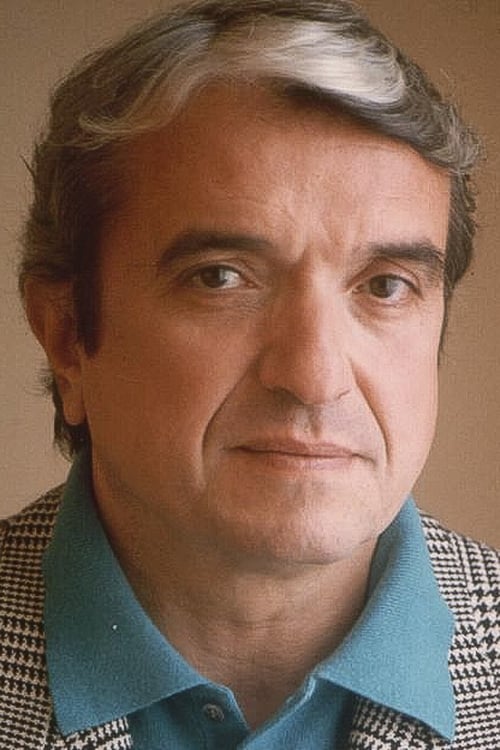Puccini: Tosca (Arena di Verona) (2006)
Opera in three acts by Giacomo Puccini
Gênero : Música, Drama
Runtime : 1H 59M
Director : Hugo De Ana, Loreena Kaufmann
Sinopse
Puccini’s melodrama about a volatile diva, a sadistic police chief, and an idealistic artist has offended and thrilled audiences for more than a century. Critics, for their part, have often had problems with Tosca’s rather grungy subject matter, the directness and intensity of its score, and the crowd-pleasing dramatic opportunities it provides for its lead roles. But these same aspects have also made Tosca one of a handful of iconic works that seem to represent opera in the public imagination.
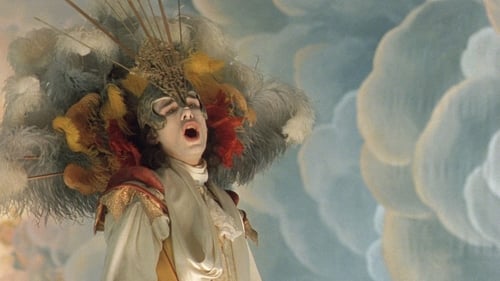
Carlo Broschi, conhecido por Farinelli, foi um dos mais notáveis cantores de ópera do seu tempo, chegando a ser o mais bem pago do mundo. Porém, ele era também um "castrato", a quem foram retirados os testículos quando criança a fim de impedir a mudança da voz. Este filme explora a sua vida, a sua carreira, a relação difícil com os compositores, particularmente Handel, e a sua problemática relação com o irmão, o compositor Ricardo Broschi.
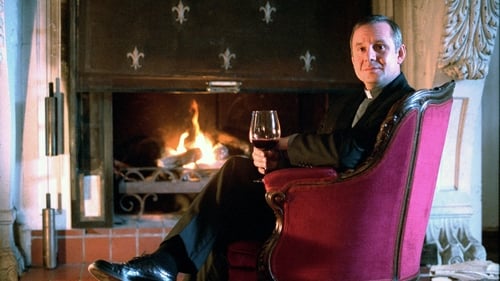
A man who accused a catholic bishop of abusing him when he was a child dies in the Austrian city Salzburg. Everyone except his widow and the eccentrical detective Simon Brenner keeps silent and believes that the man killed himself.

Em 1942, um avião da Royal Air Force é abatido sobre uma Paris ocupada pelo exército nazi. Os três pilotos saltam em para-quedas: Peter Cunningham cai nos andaimes de Augustin Bouvet, um pintor da construção civil que está a trabalhar na fachada do comando alemão, Alan Macintosh aterra no telhado da Ópera, durante o ensaio da orquestra, dirigida por Stanislas LeFort, e Sir Reginald mergulha no tanque das focas, no Jardim Zoológico de Vincennes. Enquanto a polícia alemã se lança à sua procura, Stanislas e Augustin ocupam-se dos ingleses, lançando-se nas mais extraordinárias aventuras, para os conduzirem para a zona livre.

France, 1792. Chenier is an idealistic poet, in love with the aristocratic Maddalena. While Chenier supports such notions as "liberte, fraternite egalite," his sympathies do not extend to the current Reign of Terror. Likewise, the Revolutionary Tribunal has no need for poets or their girlfriends, especially those judged to be an Enemy of the State. Heads will roll.

This is a good video of "Figaro", but there are a couple of better ones available. The Bohm and the Pappano are better still due to the female members of the casts. The reason for buying this one is the "Figaro", Bryn Terfel. No one can top him today in that role. John Eliot Gardiner also stands out. Many of us have voiced their opinion that If the Metropolitan Opera would release it's 1998 version, that would be the one to get.
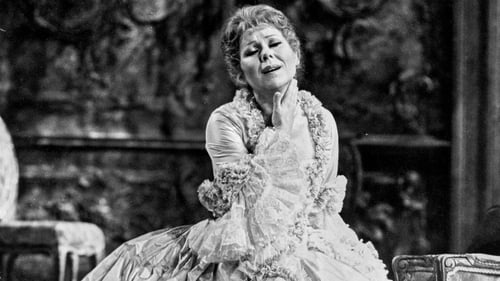
All the throbbing eroticism—and ultimate heartbreak—of Puccini’s youthful score is unleashed by James Levine and his top-flight cast. Plácido Domingo is Des Grieux, the handsome, headstrong young aristocrat who falls head over heels for the enticing, impetuous Manon Lescaut (Renata Scotto). Manon returns his love, but her obsession with luxury ruins them both. Gian Carlo Menotti’s opulent production, with sets and costumes by Desmond Heeley, superbly captures the colorful world of 18th century France.
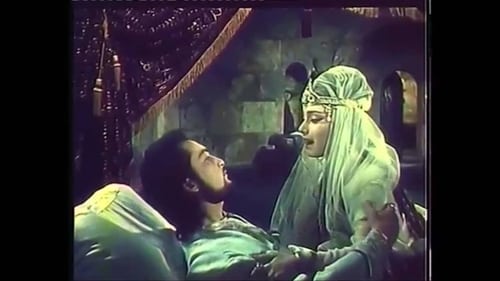
Prince Abesalom runs into an orphaned Eteri while hunting, falls for her and brings the woman to his palace as his fiancé. The Prince’s aid Murman loses his self-control at Eteri’s beauty and gives her a spelled necklace as a wedding gift. Eteri contracts a mysterious disease that only Murman is capable to heal.

La traviata (Italian: [la traˈviaːta], "The Fallen Woman"[1][2]) is an opera in three acts by Giuseppe Verdi set to an Italian libretto by Francesco Maria Piave. It is based on La dame aux Camélias (1852), a play adapted from the novel by Alexandre Dumas, fils. The opera was originally entitled Violetta, after the main character. It was first performed on 6 March 1853 at the La Fenice opera house in Venice. Piave and Verdi wanted to follow Dumas in giving the opera a contemporary setting, but the authorities at La Fenice insisted that it be set in the past, "c. 1700". It was not until the 1880s that the composer and librettist's original wishes were carried out and "realistic" productions were staged.[3]

Die Walküre (The Valkyrie), WWV 86B, is an opera in three acts by Richard Wagner with a German libretto by the composer. It is the second of the four operas that form Wagner's cycle Der Ring des Nibelungen (The Ring of the Nibelung). The story of the opera is based on the Norse mythology told in the Volsunga Saga and the Poetic Edda.[1][2] In Norse mythology, a valkyrie is one in a group of female figures who decide which soldiers die in battle and which live. Die Walküre's best-known excerpt is the "Ride of the Valkyries". DVD release June 2009.

The grand scale and magnificent acoustics of the Roman arena in Verona are ideally suited to the pageantry of Verdi's Egyptian opera, presented here in a staging that is true to the original 1913 production, framed by obelisks and sphinxes and filled with chorus and dancers. Chinese soprano Hui He has won international acclaim for her portrayal of the eponymous slave girl whose forbidden love for the war hero Radamés (Marco Berti, the experienced Verdi tenor) brings death to them both.

This 3D animated opera deals in a socially critical manner with the topic of illegal immigrants fleeing from Africa to Europe and it is also a story of impossible love between orange boy Maroc, a singing boat refugee, and lemon girl Lisa, who collects singing seashells and dreams about love. Maroc is the brave hero-type, bound by prejudice and poverty. Lisa is the daughter of a rich businessman and tomato ketchup plantation owner. Here we have the fruitier version of Romeo and Juliet - a 3D animated operatic extravaganza!

The Graham Vicks production of FALSTAFF opened the new Covent Garden Royal Opera House, and was not to everybody's taste; the garish primary colours of the costumes. The staging is effective--the complicated counterpoint of the ensembles is reflected in unobtrusive blocking that keeps the vocal lines clear and separate, especially in the final fugue. Bryn Terfel's Falstaff is a memorable creation, self-mocking and self-aggrandising at the same time--so much so, in fact, that he almost does not need the vast prosthetic body he has to wear for the part. Desiree Rancatore is an admirably sweet-toned Nanetta; Bernadette Manca di Nissa an appropriately sardonic Mistress Quickly; Roberto Frontali as Ford, in his Act 2 scena, perfectly distils and parodies every jealousy aria ever written, including Verdi's own. Haitink's conducting is exemplary in the lyrical passages, gets almost everything out of the fast and furious comic sections.

Ça Ira (French for "It'll be fine", subtitled "There is Hope") is an opera in three acts by Roger Waters based on the French libretto co-written by Étienne and Nadine Roda-Gil on the historical subject of the early French Revolution. Ça Ira was released 26 September 2005, as a double CD album featuring baritone Bryn Terfel, soprano Ying Huang, and tenor Paul Groves. A full operatic performance took place on 25 August 2006 in Poznan, Poland, and was televised live on Poland's TVP. The project involved the same number of musicians from the concert performances in addition to more than 200 dancers from the Great Theatre in Poznan. There were also period elements of stage design (such as horses, carriages and war scenes with soldiers and stunt performers) and full costumes. Over 500 artists were involved, and the production reportedly cost in excess of €2 million. Performances were held in Kiev on 16 December, and at the Poznan Opera House on 30 and 31 December 2006.

Oscar nominated animated short from 1973. Pulcinella dreams himself into a wild nightmare of a dream that leads us through an abstract world.

It's hard to imagine confirmed Straussians not wanting this starry Metropolitan Opera performance of Elektra. Strauss and his librettist, Hugo von Hofmannstahl, transformed Sophocles' take on Homer's tale into a harrowing opera noir. Elektra lives for one reason, to kill her mother, Klytämnestra, and her stepfather, Aegisth, the murderers of her father, Agamemnon. In contrast to Elektra's vengeful obsession, her sister Chrysothemis desires to get on with life. When their long-missing brother, Orestes, returns to do the deed, Elektra celebrates with a dance of death and, her sole purpose in life fulfilled, dies. Strauss joined the hermetic plot to music of the utmost opulence, violent and yearning by turns, evoking the cardinal principles of Greek tragedy - pity and terror.

Axel Kohler, the internationally renowned countertenor has brought Admeto into the modern era in timeless style by the skillful application of imaginative theatrical digressions. Köhler's production at the Halle Opernhaus revisits a work that encompasses comedy, tragedy and almost absurd grotesqueness, couching it in the convincing metaphor of a modern hospital.

As muitas peças vocais apaixonadas, ardentes ou líricas da Opereta espanhola continuaram a prosperar em concertos e recitais em todo o mundo. Um dos mais renomados e ardentes adeptos das melodias da Opereta é Plácido Domingo. Desmentindo seus 66 anos, o tenor mundialmente famoso canta essas melodias excitantes e sedutoras com a doçura sedutora de um homem muito mais jovem e transporta o ouvinte extasiado para as ruas e praças de Madri e Sevilha, Domingo é acompanhado pela Orquestra Mozarteum sob Jesús López Cobos e , sobretudo pela sua companheira da noite, a soprano Ana Maria Martínez, "uma bela mulher com uma voz fascinante, cheia de meias tonalidades voz mais aguda aveludadas nos médios e graves, com um topo reluzente". (London Times) Martínez e Domingo servem uma noite de bom humor contagiante e deleites vocais requintados. "O deslumbramento das estrelas genuínas brilhou sobre Salzburgo!" (Die Welt)
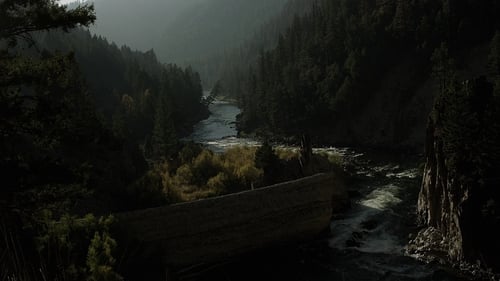
Visionary artist Matthew Barney returns to cinema with this 3-part epic, a radical reinvention of Norman Mailer’s novel Ancient Evenings. In collaboration with composer Jonathan Bepler, Barney combines traditional modes of narrative cinema with filmed elements of performance, sculpture, and opera, reconstructing Mailer’s hypersexual story of Egyptian gods and the seven stages of reincarnation, alongside the rise and fall of the American car industry.

La Cenerentola, ossia La bontà in trionfo (Cinderella, or Goodness Triumphant) is an operatic dramma giocoso in two acts by Gioachino Rossini. The libretto was written by Jacopo Ferretti, based on the fairy tale Cendrillon by Charles Perrault. The opera was first performed in Rome's Teatro Valle on 25 January 1817.---- IMDB id refers to Great Performances: Season 24, Episode 12
La Cenerentola (3 Apr. 1996) from Houston Grand Opera so release date is misleading.



